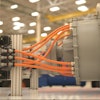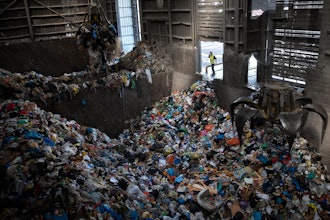NEW HAVEN, Conn. (AP) -- Pfizer Inc., the world's largest drug maker, has agreed to pay a $975,000 civil penalty to resolve alleged violations of the Clean Air Act at its former manufacturing plant in Groton, federal officials announced Monday.
The U.S. Department of Justice and the Environmental Protection Agency said the settlement is the first of its type in federal court under regulations designed to control the emissions of hazardous air pollutants from pharmaceutical manufacturing operations.
"We will not wait to enforce the law until after a catastrophe occurs," said Ronald J. Tenpas, assistant attorney general for the Justice Department's Environment and Natural Resources Division.
"Penalties such as this one compel the industry's close attention and rigorous implementation of the leak detection requirements to prevent the escape of harmful air pollutants that can endanger the public," he said.
Officials said the alleged violations occurred between October 2002 and December 2005 and resulted from a failure of Pfizer's leak detection and repair program.
The specific violations, associated with the production of bulk pharmaceutical materials, included a failure to properly conduct pressure tests to identify leaks, repair leaks before startup, equip open-ended lines with a cap or other seal and document leak tests to establish full compliance with the requirements, officials said.
Pfizer certifies in the agreement that the violations have been corrected. But officials said the violations undermined EPA's ability to determine compliance, which presented the risk of excess emissions of hazardous air pollutants from leaks that were not timely detected and repaired.
The Groton facility ceased pharmaceutical manufacturing in January.
A message seeking comment was left with Pfizer.
During its production of pharmaceutical-grade chemicals, Pfizer used substances such as methanol, hydrogen chloride, methylene chloride, MTBE, hexane, toluene and others that the EPA classifies as hazardous air pollutants.
Pfizer, a publicly traded corporation, operates about 80 manufacturing plants worldwide where it makes health care products relating to human and animal health.






















